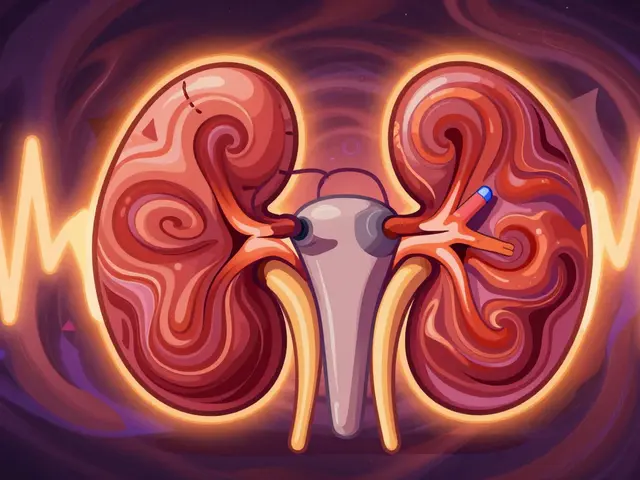
Hypertension: Easy-to-Follow Guide for Managing High Blood Pressure
High blood pressure can feel like a silent threat, but you don’t have to live with it in the dark. On this page you’ll find straight‑forward advice about what drives hypertension, how the most common drugs work, and everyday habits that can make a real difference. Everything is based on NHS‑aligned info, so you know it’s trustworthy.
What Really Raises Your Blood Pressure?
First, let’s clear up the basics. Your heart pumps blood through arteries; when those vessels get tight or the heart works too hard, pressure climbs. Age, weight, salty food, lack of exercise and stress are the usual suspects. Some people also have a family history that makes them more prone. Knowing which factor hits you hardest helps you target the right fix.
Medication Basics: Picking the Right Combination
Doctors often start with a single pill like an ACE inhibitor, a calcium‑channel blocker, or a diuretic such as hydrochlorothiazide. If one drug isn’t enough, they may add a second – the classic combo is an ACE inhibitor plus a thiazide diuretic (think Zestoretic). These combos lower pressure from two angles: they relax blood‑vessel walls and reduce fluid overload. Talk to your GP about side‑effects you notice; sometimes a small dose change can solve a headache or cough.
When you’re prescribed a combo, ask if a cheaper generic version exists. Many brands have generic equivalents that cost less but work just as well. Online pharmacies that are registered with the MHRA can be a safe way to save money, but always double‑check the registration number.
Beyond prescription meds, the NHS recommends checking your blood pressure at least once a year, or more often if you’ve been diagnosed. Home monitors are handy, but make sure you use a cuff that fits your arm and follow the user guide for accurate readings.
Now, let’s talk lifestyle – the part you can control today. Cutting back on salty snacks, swapping sugary drinks for water, and adding a brisk 30‑minute walk can shave off a few points on your reading. If you’re a smoker, quitting gives an immediate boost to heart health, and the benefits keep adding up.
Stress management is another big piece. Simple tricks like deep breathing, a short meditation, or even a hobby you enjoy can calm the nervous system and keep your blood pressure steady. You don’t need a fancy app; a few minutes of focused breathing while you wait for the kettle to boil works just fine.
Finally, keep an eye on weight. Even a modest loss of 5‑10 % of body weight can lower your systolic pressure by up to 10 mmHg. Pair a balanced diet – plenty of veggies, lean protein, whole grains – with regular activity, and you’ll see the numbers drop.
If you ever feel dizzy, have chest pain, or notice your medication isn’t working as before, call your GP right away. Adjusting doses or switching drugs is common, and your doctor will guide you safely.
Managing hypertension isn’t a one‑time fix; it’s a mix of the right pills, everyday habits, and regular check‑ups. Use this guide as a quick reference, and don’t hesitate to ask your pharmacist or GP for clarification on anything that feels unclear. Your heart will thank you.
-
6 Aug






